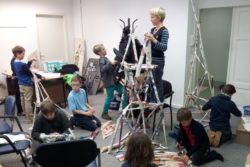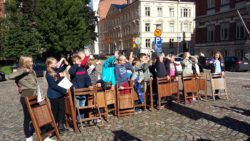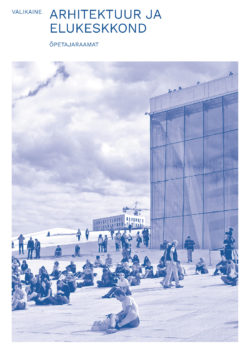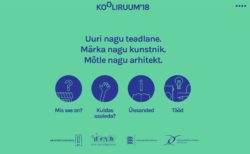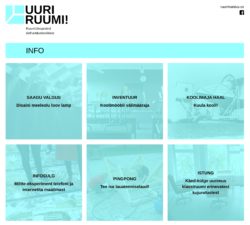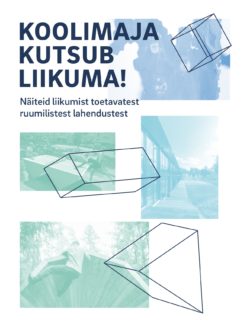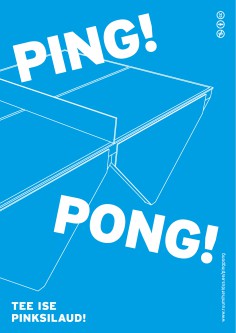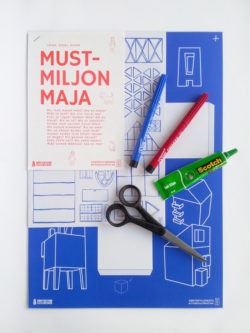School of Architecture
The School of Architecture (Arhitektuurikool) is a hobby school where kids between the ages of 7 and 19 explore and create the spatial world. There is no other initiative like it in Estonia and only a handful in Northern Europe and the Baltics. In addition to the weekly lessons held in Tallinn, the School of Architecture also organizes inspiring architecture-related events throughout Estonia, publishes study materials for the promotion of creative thought and provides built environment education.
The School of Architecture is an independent non-profit hobby school that provides architectural education to children and teens in collaboration with leading organizations in the field. The School of Architecture has been operating since 2011. The school is managed by MTÜ Ruumiharidus. The School of Architecture and its curriculum have been registered in the Estonian Education Information System.
Lessons
The weekly lessons at the School of Architecture take place in the Museum of Estonian Architecture in Tallinn. Playful and exciting assignments as well as creation and discussion help the kids to see, understand and value their spatial environment. The teachers of the School of Architecture are experienced in discussing spatial topics with children and teens, as well as in developing new learning activities. The school curriculum has been registered in the Estonian Education Information System.
Workshops
The workshops address the built environment with an emphasis on human-oriented space and sustainable development. The aim of various one-time events is to inspire young people to take notice of their environment and use it in active, positive and inventive ways. Each year, public workshops are held in various places around Estonia (schools as well as cultural events, such as the Opinion Festival, Design Night, Tallinn Architecture Biennale, Plektrum Festival etc.). The academic year culminates with a hut-building summer camp inspired by the Finnish school of architecture Arkki.
Projects
In addition to regular lessons, the School of Architecture is also involved in various one-time or recurrent projects aiming to popularize topics related to the built environment. Particular attention is paid to general education schools, so that young people all over Estonia could explore their everyday surroundings in exciting and educational ways. The study materials published by the School of Architecture support a new approach to education with a focus on exploratory and investigative learning where students play an active role, as well as practical topics that combine different fields. The materials and training courses meant for teachers make it easier to explain architecture, instruct students and conceptualize the use of space within the
school building itself.
Elective architecture course
The Estonian Ministry of Education and Research, the Ministry of Culture, and the Estonian Centre of Architecture have worked together with the School of Architecture to produce a programme for the elective architecture course: a document that establishes the principles and content of architectural studies for all Estonian upper secondary schools. The elective course is available for school students from the academic year 2017/2018 and is accompanied by a book and training courses for teachers. The teachers’ book on the elective architecture course includes the basics of architecture needed for teaching the elective course and also serves as a basis for refresher training and teacher training programmes for the architecture course.
Sponsors: Ministry of Education and Research, Ministry of Culture
School Space
The School Space (Kooliruum) projects are becoming an annual tradition. It’s an investigative and playful project where students all over Estonia use various scientific and design methods to explore the nature of school today and to create a vision for a new school. Over a period of five months, the students are given eight research and creative assignments leading to an understanding of how to improve their own school space, which is then presented to the school’s governing body or to the other participants at a meet-up.
Teachers have said the following about the School Space project:
- “It makes both students and teachers think outside the box.”
- “It broadens the learning horizons. There is also an actual result that can be implemented.”
- “A novel and interesting approach.”
- “A very interesting and educational material. An absorbing and innovative learning process.”
- “It makes you see the school space from a fresh perspective!”
- “An excellent project for creative thought!”
- “The material is comprehensive and thought-through, it helps the teacher and provides ample opportunity for integration between subjects.”
See the assignments and the student works: www.kooliruum.ee
School Space ’16 sponsors: Estonian Research Council, Ministry of Education, Centre for Educational
Technology at Tallinn University, Baltic Film, Media, Arts and Communication School at Tallinn University
School Space ’17 and ’18 sponsors: Cultural Endowment of Estonia, Gambling Tax Council
Explore Space!
Explore Space! (Uuri ruumi! ) is a web-based collection of free educational activities about architecture for general education schools that can be integrated with other subjects. Architecture is a great platform for combining the know-how from different fields in a practical manner, helping us better understand a vital part of our everyday life. The collection of activities promotes and facilitates the teaching and learning of the basics of architecture and built environments in general education schools, but also offers methodical variety – activities for diversifying daily learning –, advances the general competencies of the students, and addresses various leading topics of the curriculum.
Take a look at the educational activities: www.ruumiharidus.ee
Sponsors: European Cultural Foundation, Ministry of Culture
Schoolhouse for Exercise!
Schoolhouse for Exercise! (Koolimaja kutsub liikuma! ), produced in collaboration with exercise scientists at the University of Tartu, is a booklet on spatial solutions in and around school buildings that encourage an exercise habit. It contains more than fifty illustrated examples of school rooms that promote exercise. One by one, the highlighted fragments of various environments help the reader to understand the relationship between space and wellbeing.
Download: www.b210.ee/koolimaja.pdf
Partner: b210, Behavioural Problem Lab for the Promotion of Exercise Habit at the Faculty of Exercise and
Sport Sciences, University of Tartu
Sponsors: European Regional Development Fund in the framework of the TerVE project implemented by the Estonian Research Council
PING! PONG!
“PING! PONG!” is a manual for school students on how to build a ping pong table. Providing new opportunities for exercise is a great way to involve kids in the planning and construction process. People tend to take better care of what they have created themselves. It also provides an invaluable learning experience on how to bring about changes in the real life.
Download: the manual ping-pong.pdf
Partner: Behavioural Problem Lab for the Promotion of Exercise Habit at the Faculty of Exercise and
Sport Sciences, University of Tartu
Sponsors: European Regional Development Fund in the framework of the TerVE project implemented by the Estonian Research Council
A Gazillion Houses
The two sets of the paper-folding kit “A Gazillion Houses” (Mustmiljon maja) comprise a total of 29 different spatial forms. These can in turn be combined into a gazillion different houses – the only limit is your imagination! The kits are available from the Museum of Estonian Architecture as well as various book and design stores.
Architecture video
The most recent project of the School of Architecture is a series of video clips on topics related to space. The short videos help to illustrate educational content, bring examples and sharpen one’s perception. The first, introductory video clip was published at the end of 2016.
Sponsor: Ministry of Culture

